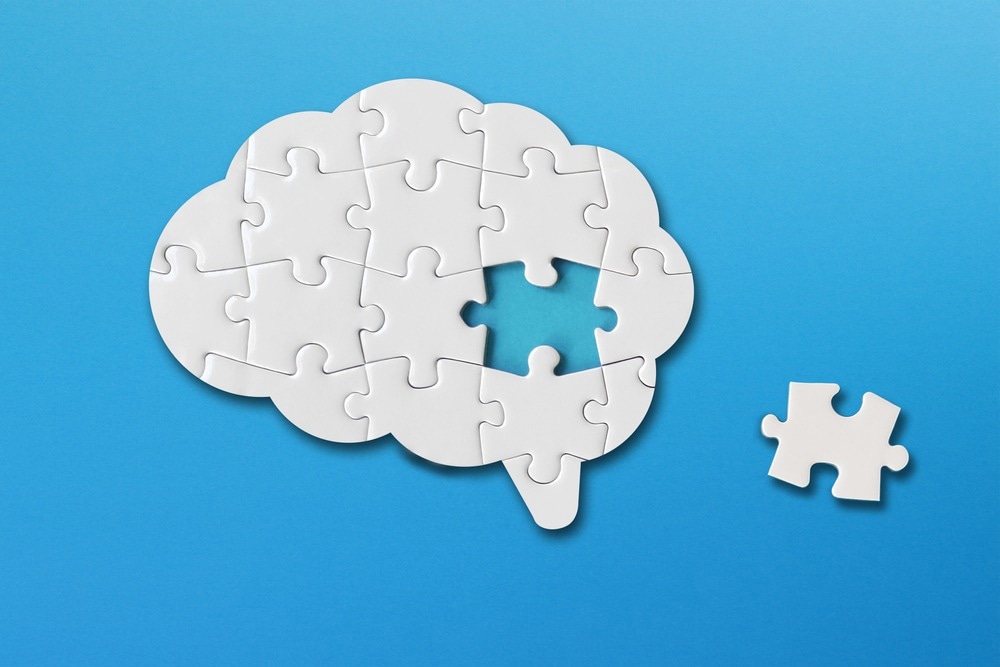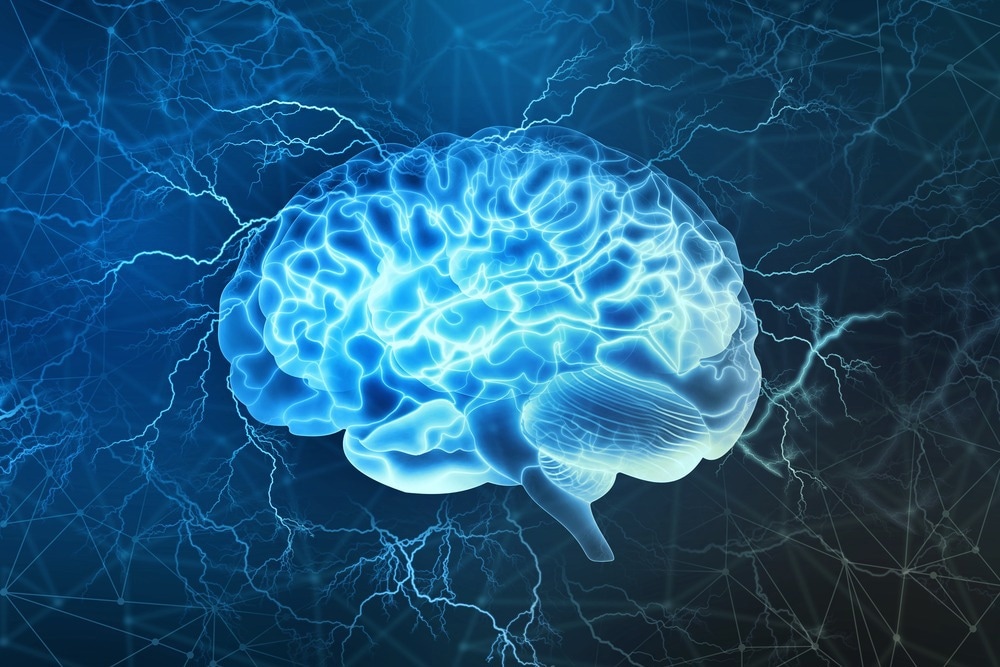Implicit memory
Explicit memory
What is the difference between implicit and explicit memory?
What influences implicit and explicit memory?
References
Further reading
Implicit and explicit memory are both types of long-term memory. The information we store or remember unconsciously is called implicit memory, while the information we memorize consciously is known as explicit memory.

Image Credit: GoodStudio/Shutterstock.com
Implicit and explicit memory each play a very important part in our daily lives and shape our ability to recall information and interact with the environment, remember both important and unimportant information, and develop lasting skills. For example, recalling how to ride a bike or read would count as examples of implicit memory, while we use explicit memory when we recall items on a list.
Implicit memory
Implicit memory is also known as unconscious or automatic memory, which refers to the information that we do not store purposely and is unintentionally memorized; we cannot consciously bring that memory into awareness. Procedural memories like sewing or driving count as implicit memory as you don't usually recall every detail of each step. Implicit memory impacts how we behave and our knowledge about different tasks.
Learned skills are not forgotten easily as they are stored in our implicit memory, and we use these memories whenever we need them in our day-to-day life. Implicit memory includes procedural memory, which carries out basic tasks such as driving a car or playing a video game.
Implicit memory and its role in day-to-day behavior have been associated with priming, where an individual's exposure to stimuli influences their subsequent response to stimulus without being aware of the connection.

Image Credit: mapush/Shutterstock.com
Classical conditioning approaches exploit priming to condition a response in an individual to an external stimulus, evoking implicit, automatic memories to evoke desired behaviors. For example, Pavlov famously induced salivation in dogs by ringing a bell, which they had come to associate with feeding. In this way, a person's personality is shaped by past experiences and working implicit memory.
The two major brain regions implicated in implicit memory include the basal ganglia, a structure located deep within the brain that is involved in a wide range of processes such as habit formation, and the cerebellum, located at the rear of the brain and involved in fine motor control.
Some examples of implicit memory include:
- Singing a familiar song.
- Typing.
- Brushing teeth.
- Riding a bicycle.
- Dressing every day.
- Navigating your home, neighborhood, or familiar place.
- Boiling water.
- Cooking.
- Writing.
- Painting.
- Playing guitar.
Explicit memory
Explicit memory is declarative memory because we consciously try to recall a specific event or piece of information. Things we intentionally try to recall or remember, such as formulas and dates, are all stored in explicit memory. We utilize recalled information such as this during everyday activities such as work or when running errands.
Explicit memory can be classed as either episodic or semantic. Episodic memory is the memory of one's own personal past, while semantic memories contain hard facts and concepts such as names.
MRI studies show that during recall of explicit short-term memories, the prefrontal cortex is activated, the most recently evolved addition to the mammalian brain. Interestingly, there appears to be a separation in function between the left and right sides of the prefrontal cortex, with the right more involved in spatial and the left verbal working memory.
The hippocampus, neocortex, and amygdala have been implicated during the formation and storage of explicit long-term memory. The hippocampus is found within the brain's temporal lobe and forms and indexes memories about our own lives for later access.
We know this as Henry Molaison had his hippocampus removed in the treatment of epilepsy in 1952, and following the procedure was unable to form any new memories of things he had done. He was, however, able to learn new skills and motor tasks, examples of implicit memory that do not rely on this region of the brain.

Image Credit: Yurchanka Siarhei/Shutterstock.com
The neocortex is the sheet of neural tissue that forms the outside surface of the brain and constitutes the largest part of the cerebral cortex. It is involved in higher functions such as sensory perception, motor command generation, spatial reasoning, and language.
Research suggests that some general knowledge memories that frequently occur and are temporarily stored in the hippocampus can eventually be stored in the neocortex as we sleep. For example, the knowledge that smoking causes cancer may not have been intentionally learned but picked up from numerous reminders.
The amygdala is an almond shaped structure within the temporal lobe of the brain, which is thought to attach emotional significance to memories. Memories with strong emotional significance are usually better remembered than those without, with memories of fear in particular being associated with the amygdala as well as being particularly quick to form, intense, and long lasting.
Examples of explicit memory include:
- Recalling phone numbers.
- Completing an exam.
- Remembering items on a list.
- Birth dates.
- Important event dates.
- Names.
- Locations.
- Country names.
What is the difference between implicit and explicit memory?
Explicit memory is encoded to long-term memory and can be retrieved when needed. Implicit memory, however, cannot simply be regurgitated on command and is the result of repeated stimuli, generating an unintentional behavioral change. Both implicit and explicit memory can be reinforced or altered with practice and repetition, but it represents the difference between intentionally learned facts or unintentionally developed behaviors.
For example, an individual wishing to "self-teach" the guitar may seek out instructive materials and thereby engage in explicit memory formation, learning how to position the fingers and the names of chords. As they practice the guitar, their skills will develop, and implicit memories relating to the fine positioning of fingers and other intricacies will form. This knowledge of how to play the guitar is distinct from explicit memories of chord names and music structure and would be difficult to recall and explain in the same manner.
Emotion plays a large role in forming and recalling both implicit and explicit memories. As discussed, explicit memories are stronger and longer lasting if tied to a strong emotional response. However, repetitive stimuli that form implicit memories are capable of causing an emotional response without the ability to recall the cause.
Peter Doolittle: How your "working memory" makes sense of the world
The two forms of memory can form a cycle wherein strong explicit emotional memories are formed and linked by implicit memories, such that when an external cue triggers an implicit memory, the explicit memory can be retrieved, along with the associated emotional response.
What influences implicit and explicit memory?
Many factors can influence the formation and recall of implicit and explicit memory, such as stress level and emotional state. High stress level affects working memory and negatively influences the effective formation of explicit memories, such as when struggling to concentrate in school.
Similarly, stress can facilitate the formation of implicit memory and eventually influence one's stress coping mechanisms, outlook on life, and innate response to external stimuli. Age can also affect an individual's ability to form, store, and recall intrinsic and extrinsic memories.
References
- Kendra Cherry. (2022). What's the Difference Between Implicit and Explicit Memory?. Verywell Mind. Retrieved 13 March 2022, from https://www.verywellmind.com/implicit-and-explicit-memory-2795346.
- Where are memories stored in the brain?. The University of Queensland. (2018). Retrieved 13 March 2022, from https://qbi.uq.edu.au/brain-basics/memory/where-are-memories-stored.
- Ward, E. V. et al. (2020). Aging Predicts Decline in Explicit and Implicit Memory: A Life-Span Study. Psychological science, 31(9).
- Park, J. L. & Donaldson, D. I. (2016). Investigating the relationship between implicit and explicit memory: Evidence that masked repetition priming speeds the onset of recollection. NeuroImage, 139, 8-16.
- Schott, B. H. et al. (2005). Redefining implicit and explicit memory: The functional neuroanatomy of priming, remembering, and control of retrieval. Biological Sciences, 102(4), 1257-1262.
Further Reading
Last Updated: Jan 6, 2023